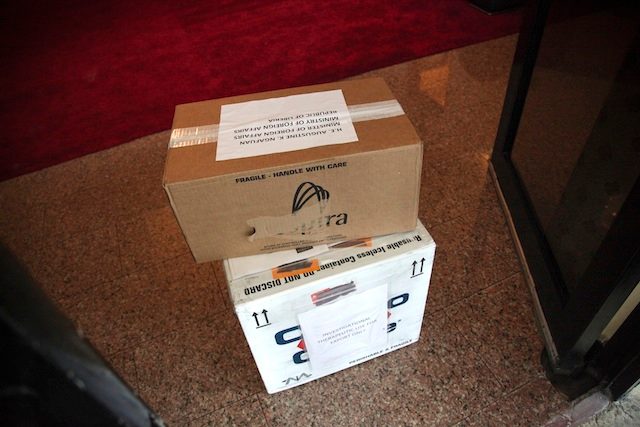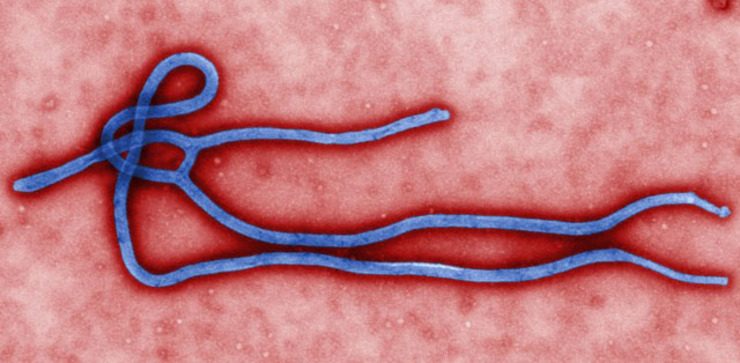SUMMARY
This is AI generated summarization, which may have errors. For context, always refer to the full article.

GENEVA, Switzerland – Only a handful of drugs could potentially be tested on humans in the search for an Ebola cure, with even fewer sites equipped to host such trials, the World Health Organization (WHO) said Friday, November 14.
The UN health agency briefing came a day after aid agency Doctors Without Borders said it planned to begin unprecedented trials of two antivirals, as well as the use of survivors’ blood as therapy, on patients in west Africa.
There is no specific treatment regime for Ebola, which has killed 5,177 people, mainly in Guinea, Liberia and Sierra Leone, and the WHO has endorsed rushing possible treatments to trial in a bid to stem its murderous rampage.
While human trials are already underway for two potential Ebola vaccines, technical and scientific experts meeting in Geneva this week found numerous stumbling blocks to beginning testing Ebola treatments on patients, the agency said.
Of the more than 120 drugs put forward to the agency, only a very small number are both suitable and available for human trial, Martin Friede of the WHO’s public health, innovation and intellectual property division, told reporters.
“We don’t have actually a lot of drugs in our pipeline that look promising,” he acknowledged.
The number of sites suited to carrying out tests on Ebola patients is also very limited, forcing WHO to further narrow its focus to a handful of drugs. (READ: Fast Facts: Ebola)
A key problem was that the drugs showing the most promise in animal trials are novel ones, like ZMapp, that are in very short supply and would be near impossible to scale up to a level that would allow proper testing.
“Conducting large clinical trials with these drugs is therefore going to be very difficult, if not impossible,” he explained.
Isolated trials inconclusive
Friede also said the use of some of the drugs on 18 patients evacuated from west Africa – most of whom survived – was no help in determining if they actually worked.
This was because they were given various combinations of drugs and had also received a far higher quality of care than most patients in west Africa.
“It was impossible to draw any conclusion” on safety or efficacy from such isolated trials, he said.
This week’s expert meeting pinpointed antiviral drug favipiravir, which works against influenza, and brincidofovir, used against adenovirus and cytomegalovirus as good candidates for trials.
Acting on the WHO experts’ recommendation, MSF selected the two antivirals for its trials in west Africa.
Interferons could also be possible candidates, Friede said, adding that the experts had also discussed breast cancer drug toremifene, but found significant “safety concerns.”
Where to conduct the tests was a major challenge, he said. (READ: 5 misconceptions about Ebola)
Because a good standard of overall care has a “significant impact” on Ebola survival rates, tests must be carried out across sites with consistently high care quality, as well as the infrastructure to support large clinical trials.
“We discovered in this meeting that there are no more than a handful of sites where such trials could actually be conducted under good conditions,” Friede said.
The lack of appropriate trial sites made it particularly important to remove from the equation drugs already shown in laboratory tests to be inefficient.
WHO is creating a publicly available database over already disproven drugs in the Ebola fight, to avoid confusion, Friede said.
He mentioned Lamivudine, used to treat HIV, which has been toted by many in the region as a miracle cure for Ebola, but which lab tests show has “no antiviral activity whatsoever.”
The experts also discussed the difficulty of testing therapies using blood and the transfer of plasma from Ebola survivors to sufferers.
Such tests are crucial, Friede said, since “there is not actually a tremendous amount of evidence that convalescent blood or convalescent blood-derived plasma is efficacious.”
Several such trials were on the horizon, he said, stressing though that there were numerous challenges, including cultural barriers to giving blood in the region and a lack of infrastructure to ensure blood is tested and handled safely. – Rappler.com
Add a comment
How does this make you feel?

There are no comments yet. Add your comment to start the conversation.